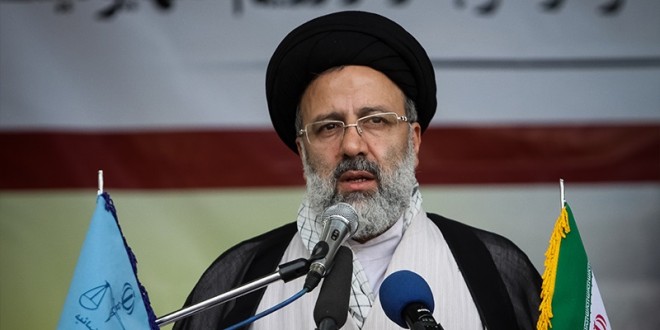Baku, Azerbaijan, May 17
By Elena Kosolapova – Trend:
Iran’s conservative candidate Ebrahim Raisi victory at the presidential election on May 19 would put Iran on an unpredictable path, Shahram Akbarzadeh, Professor of Middle East and Central Asia Politics in Deakin University, Australia and author of publications on Iran told Trend.
“The conservative camp was excited when Donald Trump won the American presidency and threatened to tear up the nuclear deal. That would have been a welcome outcome for them,” Akbarzadeh said.
On May 15 Iran’s conservative candidate Mohammad Baqer Qalibaf has stepped down and said that he would support other like-minded candidate Ebrahim Raisi in the presidential race. According to poll survey, the rating of Ebrahim Raisi for the first time exceeded the rating of incumbent president Hassan Rouhani after this change, Iranian Fars News agency reported.
Akbarzadeh believes that incumbent president Rouhani is still the most popular candidate. However he noted that at least a quarter of the voters are still undecided.
“This should be worrying for Rouhani, because in his last electoral victory he only managed to win by 51 percent of the vote. There is every chance he will not make the absolute majority in the first round of voting on Friday,” he said.
The expert noted that this is largely due to the slow pace of economic recovery and Iran continues to be subject to US sanctions which have kept international financial sector out of Iran.
“The gains Rouhani won through the nuclear deal with P5+1 and the UN removal of sanctions, are blunted by new US sanctions in relation to Iran’s ballistic tests and support for Hezbollah, which is listed as a terrorist organization by the United States,” he said.
According to Akbarzadeh, to win, Rouhani needs to convince the undecided voters that his agenda of reintegrating Iran in the global economy will pay off and produce tangible results. He added that the incumbent president also needs to keep the reformist bloc on side as they have become disillusioned with the absence of progress on social and political reforms.
“However, given the alternative, the reformist camp has no alternatives,” he said.
The expert noted that Rouhani’s re-election would give him an opportunity to continue on his diplomatic out-reach to the region and also the West.
“This is a complicated agenda as Rouhani cannot deviate from the script of the Islamic revolution too far. The Supreme Leader remains the Head of State and can veto Rouhani’s initiatives at any time. But the fact that this has not happened suggests that Rouhani’s foreign agenda has the tacit approval of the Supreme Leader. This would prove instrumental in a second term,” he said.
Akbarzadeh believes that the alternative, however, could be very damaging for Iran’s standing in the region and beyond.
“Raisi has been on public record, repeating the stereo-typical slogans of the 1979 revolution – attacking Saudi Arabia and United States. His victory would push Iran back on the course of antagonism with the international community and isolation,” he said.
On the contrary, Rouhani has made a commitment to the nuclear deal, the expert noted, adding that there is every indication that he will seek to leverage the deal to bring Iran out of isolation.
“His re-election would allow him to make progress on what he has achieved in his first term,” Akbarzadeh said.






